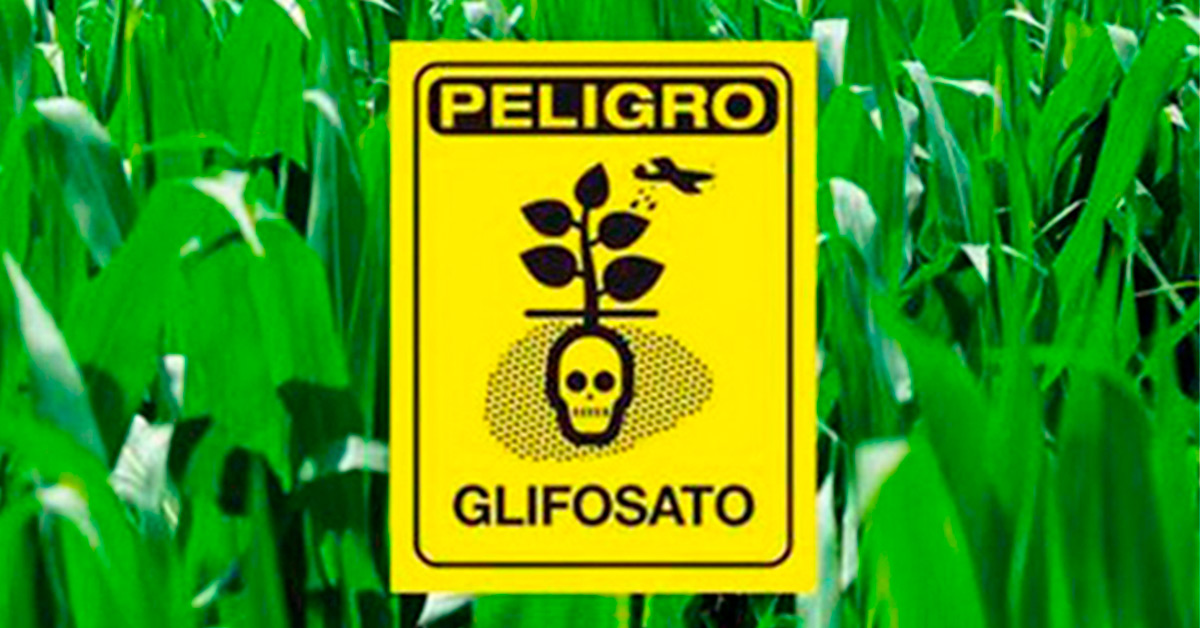
Gut microbiome effects in bees, animals, and humans are triggering concerns. Report: Jonathan Matthews
An article has just been published in La Jornada, one of Mexico City’s leading daily newspapers, which usefully summarises some of the latest research on glyphosate. The article is by Silvia Ribeiro, the Latin America director for ETC group. She is based in Mexico, where the government of President Andres Manuel Lopez Obrador issued an executive order in 2020 to phase out glyphosate and GMO corn by 2024, arguing that Mexico must attain food self-sufficiency without using toxic chemicals.
As Ribeiro points out in her article, Mexico’s decision gains support from the findings of a series of recently published scientific studies showing new harmful impacts on human, animal and plant health from glyphosate herbicides and other agrochemicals used in farming and food production. These are part of a significant volume of scientific articles that have been published since the WHO’s International Agency for Research on Cancer (IARC) reviewed hundreds of scientific papers and declared in 2015 that glyphosate is carcinogenic in animals and probably carcinogenic in humans. The recent study findings have confirmed the IARC’s findings, as well as adding other concerns.
One of these areas of concern, Ribeiro says, is the death of beneficial microbes within organisms exposed to glyphosate herbicides and the imbalance this causes in the digestive and immune systems of humans, animals and insects. In addition, the health of soils can be affected – and consequently, the health of the plants that grow in them.
A Canadian study published in 2022 looks at the association of neurological and psychiatric diseases, such as anxiety and depression, with the disruption of the intestinal flora in humans due to glyphosate herbicides, a disruption that could also have intergenerational impacts. It raises questions about the impacts of long-term disruption of the healthy gut-brain-microbiome axis relationship and the persistence of these disruptions in subsequent generations (Barnett et al, 2022).
Another 2022 study indicates that, in addition to the known effects of hormonal disruption, the presence of glyphosate residues and/or its metabolites in post-menopausal women is associated with DNA methylation, a molecular alteration that can cause cancer and accelerate cell ageing (Lucia et al, 2022).
Harm to bees
In the case of bees, in addition to the known impacts of deaths in hives due to pesticide drift, two studies published in 2022 found that glyphosate disrupts the immune system of bees. The same phenomenon had already been noted in laboratory rats, Ribeiro says. A team of researchers from the University of Texas built on their earlier work showing exposure to glyphosate at field realistic levels can perturb the beneficial gut microbiota of bees with a new study that found that, like antibiotics, glyphosate kills part of the intestinal flora of bees, which weakens their immune system and increases their vulnerability to disease (Motta et al, 2022).
Another study by researchers from universities in Canada analyzed the effect of glyphosate and other herbicides, fungicides and pesticides, which affect bees and other insects due to their presence in plants and soils. They found that these exposures can seriously damage the microbiota of insects and animals, in addition to reducing the presence of beneficial microbes in the soil and the environment (Daisley et al, 2022).
Based on the findings of these and other studies, says Ribeiro, there is much concern about the devastation of microbial diversity due to pesticides, something that other research has confirmed in humans, resulting in greater immunological vulnerability.
In terms of plants, Ribeiro points to a recent Finnish study showing that glyphosate residues present in the soil affect the production of plant hormones in non-target crops, altering their yield and natural defences (Fuchs et al, 2022).
Toxic escalation
Ribeiro points out that what gives added weight to all these concerns is that fact that glyphosate is the most widely used agrochemical in the history of mankind, since, in addition to agriculture, companies have promoted its use in gardening, in parks, and on roadsides and highways, which has increased its geographic spread and the presence of residues in soils and water sources. And, of course, genetically engineered glyphosate resistance in crops has led to an exponential increase in its use, while the explosion in glyphosate-resistant weeds that this has caused has led to companies engineering GM crops that are tolerant to multiple herbicides, enabling more and more high-risk substances to be sprayed along with glyphosate.
The key to this toxic escalation, with its enormous negative impacts on plants, animals and ecosystems, is that a few transnational companies dominate more than two-thirds of the global market for seeds and agrochemicals, says Ribeiro. Despite the fact that agriculture without toxic chemicals is viable, healthier and more nutritious, they have managed to impose this type of agriculture with the collusion and support of governments on medium-sized and even small industrial farmers, generating dependency on their toxic products. That’s why Mexico standing fast on its planned glyphosate ban, despite all the pressure, is so important.